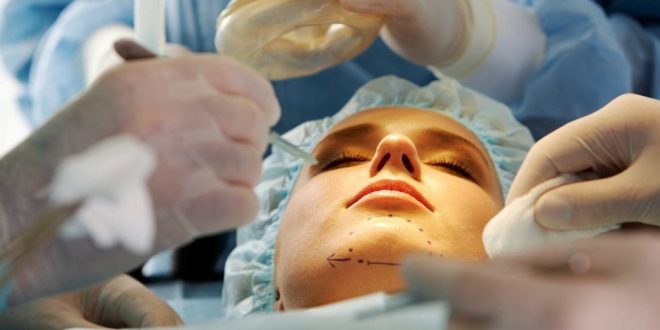Facial implants are the medical term for cheek facial implant, facial implant surgery and facial prosthetic implant. The objective of a facial implant procedure is to correct and modify the balance and shape of the face using formed implants.
Facial implants are used to enhance certain features of the face. It builds diminishing chins, gives distinction to cheekbones and reshapes jaw lines.
Facial implants can be used for augmenting deficiencies on the skeletal features of the patient’s face. The most common condition treated with facial implants involves the cheek and chin. Jaw and nasal implants are also used for augmentation.
Facial implants may be elective, or advised by the surgeon due to prior surgery.
Also Known As: Cheek, Jaw and Chin Implants
Benefits of Facial Implants
In general, facial implants can benefit patients with facial deformities, which cannot be surgically fixed by other procedures.
Cheek implants are used to restore soft tissue and mid-facial skeletal deficiencies. It is usually performed as a complement procedure to eyelid surgery, rhinoplasty and other facial plastic surgery procedures.
Chin implants are used to enhance chins that are congenitally small and disproportion to other facial features.
The Facial Implant Procedure
In most cases, facial implant surgery requires general anesthesia. However, surgeons may also recommend local anesthesia combined with sedatives depending on individual backgrounds.
The length of facial implant surgery will largely depend on the facial part to be treated. The average duration of the surgery is about one to two hours.
Cheek implants are placed internally through the patient’s upper lip and externally through the lower eyelid. The sutures will vary depending on the technique used (whether external or internal). This procedure usually takes 1 hour.
Chin implants are placed internally under the patient’s chin or via the lower lip. The sutures will also depend on the technique used. This facial implant procedure takes 30 minutes to an hour.
Lower jaw implants are placed inside the lower lip. The area to be treated will be secured with sutures, which will dissolve in a few days. This facial implant procedure takes one to two hours.
Recovery After Facial Implant Procedure
In general, patients who underwent facial implant surgery may not be able to participate in certain activities, especially those that can strain the face, for several weeks.
Each facial implant procedure is accompanied by aftercare instruction from the surgeon.
Chin implants may give the patient some discomfort and swelling for several days. Difficulty of talking and smiling is normal. Blue and black marks are visible around the neck and chin. Usually, the surgeon will instruct the patients to maintain proper dental hygiene, correct eating and further advice about activities after facial implant surgery.
Cheek implants are accompanied with postoperative care instructions such as diet restrictions and activity limitations. The patient will have trouble of moving the lips and mouth, but will eventually diminish after a few days. After ten days, the stitches inside the mouth will be dissolved gradually.
Jaw implants may give the patients significant swelling 1 to 2 days after the surgery. However, the swelling will subside after several days.
The Results
Although the healing time may be a bit long, the results are worth the wait. The facial implants will look natural after a couple of weeks or months.
Once you have gotten used to your new look, you will recognize the positive results it has given your overall appearance.
Surgical facility And Cost
Whether inpatient or outpatient basis, the facial implant surgery may be performed at a hospital outpatient facility, office-based facility or a freestanding surgical center.
Depending on the implant type and placement, geographical location and surgeon choice, the average cost of one facial implant ranges from $2,000 to $5,000.
Side Effects, Risks, Complications and Contradictions
Side effects of facial implants include temporary swelling and bruising, which usually lasts up to two days.
Facial implant surgery is associated with infections and a risk that the implant may shift direction. If ever this happens, contact your doctor for a consultation and follow-up operation.
Although occurs rarely, some patients experience fever, abnormal swelling or pain and abnormal discharge from the incision site. When this happens, visit your doctor immediately.
Other complications include nerve damage, bleeding, excessive bruising, blood clot and allergic reactions to the implants.
 Lesbian, Gay, Bisexual, Transgender & Intersex News Lesbian News, Gay News, Bisexual News, Transgender News, Intersex News, LGBTI News
Lesbian, Gay, Bisexual, Transgender & Intersex News Lesbian News, Gay News, Bisexual News, Transgender News, Intersex News, LGBTI News




